Background
Yosef Yerushalmi was born on May 20, 1932 in Bronx, New York, United States; the son of Leon and Eva (Kaplan) Yerushalmi.





















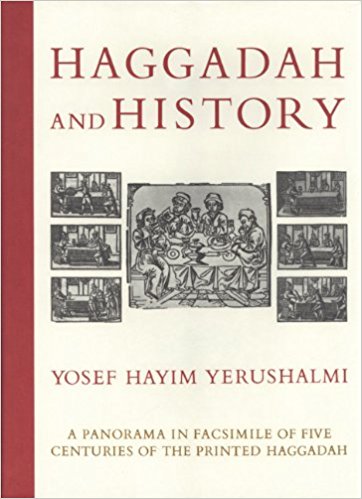
(Haggadah & History is much more than a history of the Pas...)
Haggadah & History is much more than a history of the Passover story. It is also a mirror of the last five centuries in Jewish history as reflected in the haggadah itself. Two hundred facsimile plates reproduce representative pages from rare printed haggadot in two of the world's outstanding Judaica collections: the libraries of Harvard University and The Jewish Theological Seminary. This visual history is complemented by Professor Yerushalmi’s fascinating historical introduction and richly detailed place descriptions. The result is a rare blend of scholarship and art.
http://www.amazon.com/gp/product/0827607873/?tag=2022091-20
1975
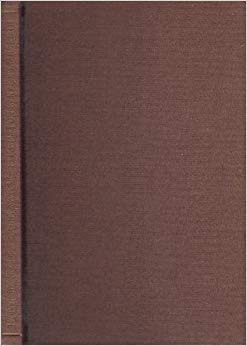
(Jews in exile have often struggled for the protection of ...)
Jews in exile have often struggled for the protection of the highest governmental power, whether king, emperor, caliph, or pope, because they learned early that their safety could not be entrusted to the goodwill of their gentile neighbors or the local authorities. Alexandrian Jews in the Hellenistic period relied on Imperial Rome instead of their native Alexandria, and Jews in medieval Europe sought ties with the Carolingian emperors, circumventing all inferior feudal relationships. In all such cases of vertical alliances Jews have both gained and lost. In this landmark study, Yosef Hayim Yerushalmi presents the Lisbon Massacre as one chapter in the history of alliances between Jews and the powers that have ruled over them. Through an exploration of Jewish attitudes and their consequences at this important juncture in Jewish history, he uncovers the “myth of the royal alliance” in the thought of Ibn Verga and others. He offers a fresh review of available data on the course of the pogrom and relates it to the Shebet Yehudah. Two appendices include the German account of the massacre, based on three printed editions (two of them previously unknown), and the major documentary sources, giving historians access to key primary materials as well as Yerushalmi’s analysis. Even the modern era did not fundamentally change these dynamics. Hannah Arendt emphasized the extent to which Jews have allied themselves to the modern nation-state and have become vulnerable when other groups oppose that nation-state. Modern Jews have frequently clung to an uncritical faith in the state’s protection, even when that faith bears no correspondence to reality. Jews in exile have often struggled for the protection of the highest governmental power, whether king, emperor, caliph, or pope, because they learned early that their safety could not be entrusted to the goodwill of their gentile neighbors or the local authorities. Alexandrian Jews in the Hellenistic period relied on Imperial Rome instead of their native Alexandria, and Jews in medieval Europe sought ties with the Carolingian emperors, circumventing all inferior feudal relationships. In all such cases of vertical alliances Jews have both gained and lost. In this landmark study, Yosef Hayim Yerushalmi presents the Lisbon Massacre as one chapter in the history of alliances between Jews and the powers that have ruled over them. Through an exploration of Jewish attitudes and their consequences at this important juncture in Jewish history, he uncovers the “myth of the royal alliance” in the thought of Ibn Verga and others. He offers a fresh review of available data on the course of the pogrom and relates it to the Shebet Yehudah. Two appendices include the German account of the massacre, based on three printed editions (two of them previously unknown), and the major documentary sources, giving historians access to key primary materials as well as Yerushalmi’s analysis. Even the modern era did not fundamentally change these dynamics. Hannah Arendt emphasized the extent to which Jews have allied themselves to the modern nation-state and have become vulnerable when other groups oppose that nation-state. Modern Jews have frequently clung to an uncritical faith in the state’s protection, even when that faith bears no correspondence to reality.
http://www.amazon.com/gp/product/0878206000/?tag=2022091-20
1976
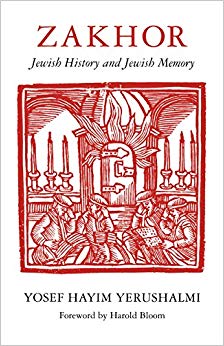
("Mr. Yerushalmi's previous writings . . . established him...)
"Mr. Yerushalmi's previous writings . . . established him as one of the Jewish community's most important historians. His latest book should establish him as one of its most important critics. Zakhor is historical thinking of a very high order - mature speculation based on massive scholarship." - New York Times Book Review
http://www.amazon.com/gp/product/0295975199/?tag=2022091-20
1982
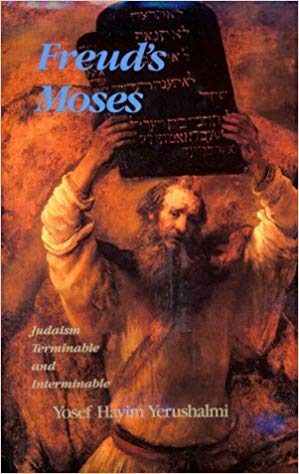
("Moses and Monotheism", Freud's last major book and the o...)
"Moses and Monotheism", Freud's last major book and the only one specifically devoted to a Jewish theme, has proved to be one of the most controversial and enigmatic works in the Freudian canon. Among other things, Freud claims in the book that Moses was an Egyptian, that he derived the notion of monotheism from Egyptian concepts, and that after he introduced monotheism to the Jews he was killed by them. Since these historical and ethnographic assumptions have been generally rejected by biblical scholars, anthropologists, and historians of religion, the book has increasingly been approached psychoanalytically, as a psychological document of Freud's inner life - of his allegedly unresolved Oedipal complex and ambivalence over his Jewish identity. In "Freud's Moses" an historian of the Jews brings a new perspective to this puzzling work. Yosef Hayim Yerushalmi argues that while attempts to psychoanalyze Freud's text may be potentially fruitful, they must be preceded by a genuine effort to understand what Freud consciously wanted to convey to his readers. Using both historical and philological analysis, Yerushalmi offers new insights into Freud's intentions in writing "Moses and Monotheism". He presents the work as Freud's psychoanalytic history of the Jews, Judaism, and the Jewish psyche - his attempt, under the shadow of Nazism, to discover what has made the Jews what they are. In the process Yerushalmi's exploration of Freud's last work provides a reappraisal of Freud's feelings toward anti-Semitism and the gentile world, his ambivalence about psychoanalysis as a "Jewish" science, his relationship to his father, and above all a new appreciation of the depth and intensity of Freud's identity as a "godless Jew".
http://www.amazon.com/gp/product/0300049218/?tag=2022091-20
1991
Yosef Yerushalmi was born on May 20, 1932 in Bronx, New York, United States; the son of Leon and Eva (Kaplan) Yerushalmi.
Yosef Yerushalmi was a student of the Yeshiva University, situated in New York, United States. In 1953 he became a Bachelor of Arts. Then he continued his education in Jewish Theological Seminary, in New York, United States. In 1957 he got a degree of Master of Hebrew Literature.
Then he studied at Columbia University, and in 1961 Yosef Yerushalmi got a new degree of Master of Arts in the field of history. He also got a degree of Doctor of Philosophy from Columbia University in 1966.
He was an Honorary Doctor of humane letters in Jewish Theological Seminary of America, as well as an honorary Doctor of humane letters in Hebrew Union College. Also he received the title of Honorary Doctor of Philosophy from University of Haifa. In Harvard University he got a title of Hononary Master of Arts.
Yosef Yerushalmi started his career as an instructor of Jewish history in Rutgers University in 1963, and held this position until 1966.
In 1966 he continued his teaching career at Harvard University in Cambridge as an assistant professor of Hebrew and Jewish history. Since 1970 Yosef Yerushalmi was a professor of Hebrew and Jewish history, he held this position for eight years.
In 1978 he was a Jacob E. Safra Professor of Jewish History and Sephardic Civilization, and also a chair of the department of Near Eastern languages and civilizations to 1980.
Then Yerushalmi changed his workplace and began to work in Columbia University as a Salo Wittmayer Baron professor of Jewish history, culture and society on the department of history. In 1980 he was a director of Center for Israel and Jewish Studies.
Ansley award was given to Yosef Haim Yerushalmi by Columbia University Press in 1968 and the Newman Medal for Distinguished Achievement in 1975. National Jewish Book award was given to him for his book "Zakhor: Jewish History and Jewish Memory" in 1983 and Gold Medal from Portuguese Academy of History in Lisbon in 1989.
Award of the New York Psychoanalytic Institute was received by him for “distinguished contributions to applied psychoanalysis in 1991.
Yosef Haim Yerushalmi won the Medal of the National Foundation for Jewish Culture for “achievement in history."
(Jews in exile have often struggled for the protection of ...)
1976("Moses and Monotheism", Freud's last major book and the o...)
1991(Haggadah & History is much more than a history of the Pas...)
1975("Mr. Yerushalmi's previous writings . . . established him...)
1982
Quotations:
“The antonym of "forgetting" is not "remembering", but justice.”
"My terror of forgetting is greater than my terror of having too much to remember. Let the accumulated facts about the past continue to multiply. ... So that those who need can find that this person did live, those events really took place, this interpretation is not the only one.”
Yosef Haim Yerushalmi was a member of Academia Portuguesa da Historia in Lisbon, American Academy for Jewish Research, National Endowment for the Humanities and American Academy of Arts and Sciences.
From 1989 to 1990 Yerushalmi was a member of Guggenheim. Yosef honorary member of Carl Friedrich von Siemens Stitung in Munich, Germany in 1996 and 1997.
Also he was a member of National Foundation for Jewish Culture and Kent.
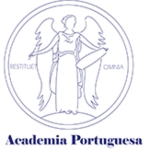
Academia Portuguesa da Historia , Lisbon
1985
American Academy for Jewish Research
1972

National Endowment for the Humanities
1976
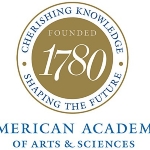
American Academy of Arts and Sciences
1986
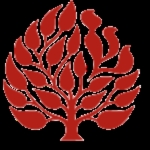
Honorary Doctor of humane letters
Jewish Theological Seminary of America
1987
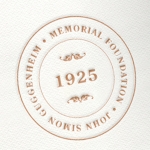
Guggenheim
1989 - 1990
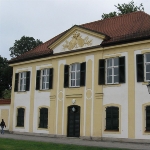
Carl Friedrich von Siemens Stitung , Munich
1996 - 1997
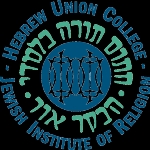
Honorary Doctor of humane letters
Hebrew Union College
1996
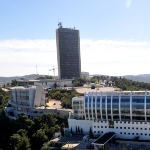
Honorary Doctor of Philosophy
University of Haifa
1997

Hononary Master of Arts
Harvard University
1970
National Foundation for Jewish Culture
1964
Kent
1963
Yosef Hayim Yerushalmi was married to Ophra Pearly, a concert pianist on January 4, 1959. They had a daughter - Ariel Yerushalmi.
